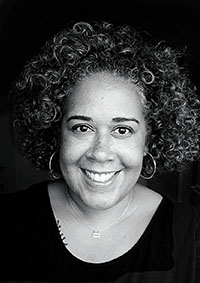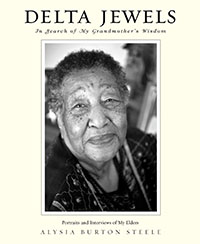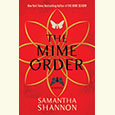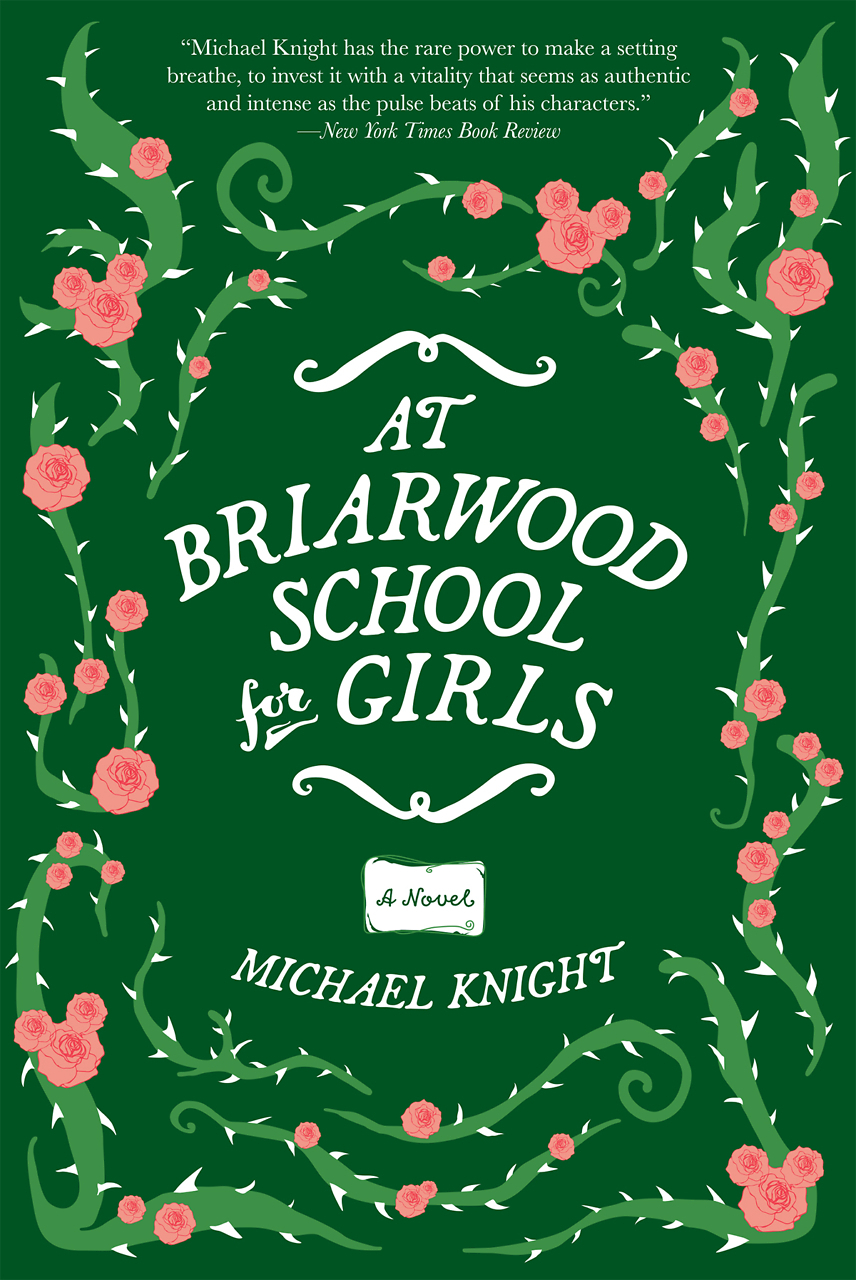Celebrating Proud Black Women
Alysia Burton Steele’s portraits of long-lived black women in the Mississippi Delta explodes contemporary notions of beauty
To call Alysia Burton Steele’s thoughtful and thought-provoking book Delta Jewels by its full title, one must write: Delta Jewels: In Search of My Grandmother’s Wisdom: Portraits and Interviews with My Elders. That’s quite a few words. And not one too many.
Steele has been a photographer for a quarter century and was part of a team that won a 2006 Pulitzer Prize for documenting Hurricane Katrina. Delta Jewels interweaves the story of Steele’s early life in Pennsylvania and Mississippi with large black-and-white photographs, some spanning two pages, of fifty-four sage black women. Accompanying each portrait is a first-person account of each woman’s life and her signature.
 Delta Jewels is quite obviously part autobiography, part biography, part photography book, and part autograph book. But it is the less obvious parts—Steele’s critique of prevailing beauty aesthetics and her exploration of the intimate lives of long-lived black women—that dazzle.
Delta Jewels is quite obviously part autobiography, part biography, part photography book, and part autograph book. But it is the less obvious parts—Steele’s critique of prevailing beauty aesthetics and her exploration of the intimate lives of long-lived black women—that dazzle.
In black English the word “funeralize” means to bury with due pomp and circumstance; it means to honor the worthy with a worthy and honorable act of your own. To introduce Alysia Burton Steele and Delta Jewels I am creating a new word: “portraitsize.” It means to create a worthy and honorable portrait that celebrates both viewer and viewed. Steele has portraitsized her Delta jewels. In doing so she doesn’t merely challenge the prevailing American standards of beauty—she destroys them.
Steele recently answered questions from Chapter 16 via email:
Chapter 16: Which of the women you photographed is most like the grandmother who raised you?
Alysia Burton Steele: I found a little something about my grandmother in most of the women. Perhaps it’s the Southern culture or their generation, but I would say that Mrs. Lela Bearden reminded me most of Gram. Mrs. Bearden bought her husband’s clothes for much of their marriage, as did my Gram for Pop-Pop. Fond memories for me are remembering Gram buying Pop-Pop a baby-blue suit that matched his eyes and how she would bring home clothes and shoes for him to try on. I especially connected with Mrs. Bearden because her stories took me back to a good place in my childhood.
Chapter 16: Is there any sense that Delta Jewels is about mother-loss as well as grandmother loss?
For me, it was about a grandmother’s loss, but I recognize for many it may be about the loss of a mother, grandmother, aunt, sister, teacher—any woman who has helped raise, encourage, and support us.
Steele: Absolutely. For me, it was about a grandmother’s loss, but I recognize for many it may be about the loss of a mother, grandmother, aunt, sister, teacher—any woman who has helped raise, encourage, and support us. I believe many who take the time to read my book will see themselves and a woman who they love. It goes across race, too. It’s about remembering old times and learning from our elders—appreciating our oral history and remembering all the quirks, old sayings, and mannerisms that helped shaped us into who we are today.
Chapter 16: You do a powerful job of capturing the particular beauty of every single woman you photograph in Delta Jewels. What do you look for to find the beauty in the person who is sitting for you?
Steele: Thank you for saying this because it means a lot to me. As a photojournalist, I am very aware of my surroundings. I am a visual person and watch people. When I sat down with the women, I preferred to interview and talk with them first and then take their photograph. That was done by design. I believe you have to connect with your subject first. I needed to make eye contact and listen to them— I mean really listen to them. Oftentimes I had to dig deeper and ask many follow-up questions.
I watched their mannerisms, how they held their heads, how they sat with their hands. I did this because I wanted to see what features spoke the most to me. That’s how I decided to take their photographs. For example, Mrs. Velma Moore has incredibly high, beautiful cheekbones. I knew I had to highlight them. How to do that? Take a profile photo. Ms. Bessie Thompson has striking, piercing eyes. How to highlight them? Get extremely close to her—front and center and get right to the point—her eyes. I went with the flow and highlighted what spoke to me. Some women were extremely uncomfortable, but I tried my best.
And you know, as a black woman, I get very irritated when photojournalists show black people in such a negative light. I get tired of seeing stories about athletes, drugs, unwed mothers—like that’s all we are. Can someone show me some proud black women? We need more of it. I believe our culture is thirsty for it. And I just tried to do my grandmother and these wonderful grandmothers justice.
 Chapter 16: Do you consider yourself to be a beautiful woman?
Chapter 16: Do you consider yourself to be a beautiful woman?
Steele: Yes, I am a beautiful woman. Do I wish I were thinner? Yes. Do I wish I didn’t have as much gray hair? Yes. At forty-five, I’m a work in progress. But what I love about myself? I have a generous, giving heart. I feel for people. I sometimes think after I do. I cry easily, am emotional and passionate about everything, and I try to do the right thing. It’s not always easy, but I think those qualities make me even more beautiful—at least I hope they do.
Chapter 16: Delta Jewels interweaves autobiography, biography, and photographs. But you also include, quite prominently, the signatures of the women you photographed. If you hadn’t included the signatures, what would be missing?
Steele: The signatures. Before I started on this journey, I was very clear about what I wanted. Signatures were critical and a must for me. Handwriting is a big part of who we are. If the signatures weren’t there, that would be the missing part. It was their stamp of approval, their words. I mean, look at their writing. It says so much about them. I want people to look at their signatures and know these women are proud of what they’ve shared with me.
Chapter 16: You were born in the North and live in Oxford, Mississippi—not the Delta. Did working on this book feel more like a profound visit, a homecoming, or something else altogether?
Steele: A homecoming, I guess. Hard to answer. I interviewed these women because I needed them. I couldn’t have my grandmother. I’d do anything to see her again, to feel her hug, to see her eyes looking back at me, to see her standing in the doorway watching me walk up. I have tears in my eyes answering this question. This experience was about making peace with what I should have done twenty- some-odd years ago. I should have sat down with my grandmother and learned more from and about her. These women filled my soul with comfort. They wrapped me up in hugs. They gave me a peace, and I think I gave them more of a voice. A mother in the book, Mrs. Herma Mims Floyd, once said to me, “You are really doing something for us, Lisa.” And I say, “Y’all did more for me.”
These women filled my soul with comfort. They wrapped me up in hugs. They gave me a peace, and I think I gave them more of a voice.
Chapter 16: Delta Jewels explodes stereotypes by documenting and celebrating something that has long been invisible to most Americans about Southern blackness: the excellent, enduring marriages. How did you decide to center your interviews on the women’s marriages and not their grandchildren?
Steele: You know, I didn’t have a list of questions prepared before I met with each woman. I had maybe three or four questions that I asked every woman, but I “let” each woman talk about what she wanted to talk about—be it about education, marriage, religion, race, etc. I went with the flow. They ran the show. I would just dig deep and hope they’d share.
Everyone has their own passion, stories that mean that most to them. Ms. Rena Butler wanted to share about how she wanted to commit suicide after she found out she was pregnant immediately after high school. Ms. Butler raised her daughter through some tough times, but she asked me to print that story because she wanted young women to read about growth, pain, and fear. Another woman featured, Mrs. Ivey Anderson, thanked me for including her. After I read to her what I’d written about her, she told me one night she was in bed thinking about her life, thinking about things she’d once forgotten. She said it brought back some painful memories—and some good ones too. That right there? Powerful. When you touch the mothers like that, well, it let me know I did something good.
Chapter 16: You portray each Delta jewel as profoundly comfortable in her own skin. If you had photographed these women as girls on the “plantations” where so many were raised, do you think that feeling would have been equally clear?
Steele: I don’t know how to answer that question. As women I think we become more aware of our strength, our worth, as we age. We reflect on things, and we learn from life experiences. I can’t say if they would have been more comfortable or not. I’m positive many of them were just as clear about who they were then as they are now.
[This article appeared originally on April 1, 2015. It has been updated to reflect new event information.]

Nashville novelist Alice Randall is the author of The Wind Done Gone, Pushkin and the Queen of Spades, Rebel Yell, and Ada’s Rules. Her latest book, Soul Food Love, is a cookbook memoir co-written with her daughter, Caroline Randall Williams.





